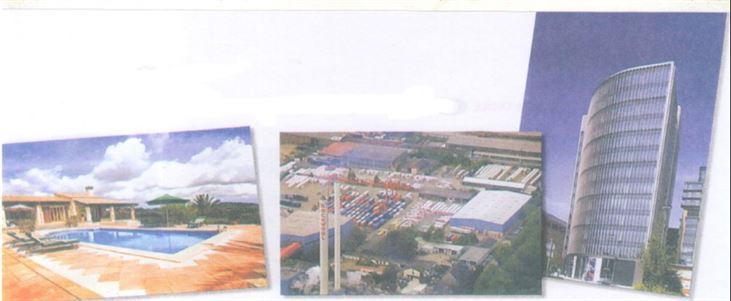fce grammar about present perfect continuous
لغات کتاب اف سی ای درباره ی زندگی در شهر و روستا و توصیف ساختمان ها

Vocabulary 3: Towns and villages

1 a Complete each gap with a word from the box to form places you might find in a village, town or city. The first one has been done for you.
building flats housing industrial
office pedestrian residential shopping
1 This charming three-bedroomed villa is located in a quiet residentialarea .
2 You can't drive down Bromley Way any more - it's a street now.
3 My uncle lives on the fifteenth floor of a huge block of
4 I usually buy my clothes at the indoorcentre on the edge of town: there's so much choice under one roof.
5 Most of the blocks here are occupied by insurance companies and law firms.
6 Property prices fell and all building work stopped, leaving a number of abandoned sites around the town.
7 They knocked down all the houses and built an estate for small manufacturing businesses.
8 It's easy to get lost on the estate where I live: all the properties look exactly the same.
b Can you think of an example for each of the places in 1a in the area where you live?
Are they on the outskirts of your town or village or in the centre?
Are any within easy walking distance of your home?
2 The following adjectives can all be used to describe a town or a village. Which of them are positive and which are negative? Make two groups in your notebook.
lively pleasant run-down picturesque shabby
dull quaint depressing prosperous bustling
Which adjectives would you use to describe the area where you live?
Speaking 2
Part 1
Interview
In Part 1 of the Speaking exam, you may be asked to talk about where you live. Ask and answer the following questions with your partner.
- What are the amenities like in your local area? (e.g. shops, sports facilities, cinemas, libraries)
- Is everything within easy walking distance?
- What are the good points about living where you do?
- Is there anything you don't like about it?
- What changes have there been in your local area in recent years?
- Have they been changes for the better or for the worse?
- Do you think you will always live in the same area?
Do'nt forget
Develop your answers by giving reasons or examples.
Language focus 3: Present perfect continuous
1 The present perfect continuous can be used:
1 to emphasize the duration of a situation or activity. You've been living in a village for nearly five years now. 2 to suggest that a situation or activity is temporary.
I'm decorating my room so I've been sleeping on the sofa.
3 to suggest that a situation or activity is incomplete. We've been painting the house. We hope to finish it soon.
4 to focus on the repetition of a situation or activity. I've been trying to phone Tim all day, but there's no reply.
Like the present perfect simple, the continuous form can be used to talk about the effects in the present of a recent past event.
Continuous: / think she's been crying. Her eyes are very red. (activity)
Simple: You've cut yourself. There's blood on your shirt. (single action)
However, it is not normally used to talk about the number of things that have been completed.
Continuous: I've been writing letters this morning. (focus on the activity)
Simple: I've written five letters this morning. (focus on the finished result)
2 For questions 1-4 explain the difference in meaning between sentence a and b and why the present perfect simple or continuous is used in each case.
1 a I've been reading that book you lent me. I can't put it down.
b I've read that book you lent me. I really enjoyed it.
2 a They've been going to the supermarket to do their shopping recently.
b They've gone to the supermarket to do their shopping. They'll be back at 12.00.
3 a I've been baking all day. I'm exhausted.
b I've baked a couple of cakes. Would you like to try one?
4 a She's been living with her sister since June, just until she finds a place of her own.
b She's lived with her sister for over 80 years.
3 Complete the gaps in this telephone conversation with the past simple, the present perfect simple or the present perfect continuous form of the verbs in brackets.
Dave : Hi Andy, it's Dave. I (1) ( just/hear) that you and Sandra are getting married next May. How long (2) (you/be) engaged?
Andy : About six months. I (3) (propose) to her when we were on holiday in Fiji. We (4) (keep) it secret for about a month or so after that. just until we (5) (be) sure of the date for the wedding.
Dave : So (6) you (make) all the arrangements yet?
Andy : Yes, more or less. Of course, since we got engaged we (7) (save) up to buy a flat as well. We (8) (both/work) overtime to earn a bit extra. We (9) (already/save) enough to pay a deposit. Anyway, how about you? What (10) you (do)?
Dave : I (11) (study) hard as usual. I (12) (fail) a couple of exams in June, so I've got to re-sit them next month.
4 Work in pairs. Read the following then do the roleplay below.

For the last six months, a small group of young people has been living on an otherwise uninhabited tropical island as part of an experiment in survival. They will be there for another six months.
A group of journalists has been allowed to land on the island and interview the young castaways about their experiences since the beginning of the experiment. Here are some examples of what they will ask about:
finding and preparing food entertainment relationships
shelter and clothing health and fitness other
Student A
You are a journalist. You should prepare your questions for the interview. Write questions which focus on:
a Activities: e.g. What have you been using to hunt with?
b Completed actions: e.g. Have you caught many fish?
Student B
You are a castaway. You should prepare some answers for the interview. Write sentences on:
a Activities: e.g. I've been eating fruit from the trees.
b Completed actions: e.g. We've built a very basic kitchen.
Now roleplay the interview.


